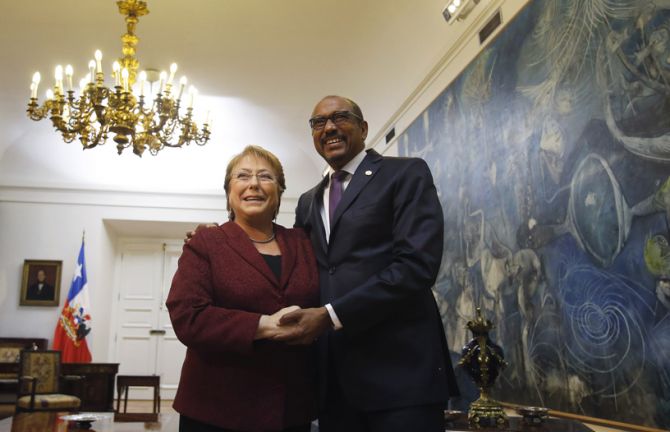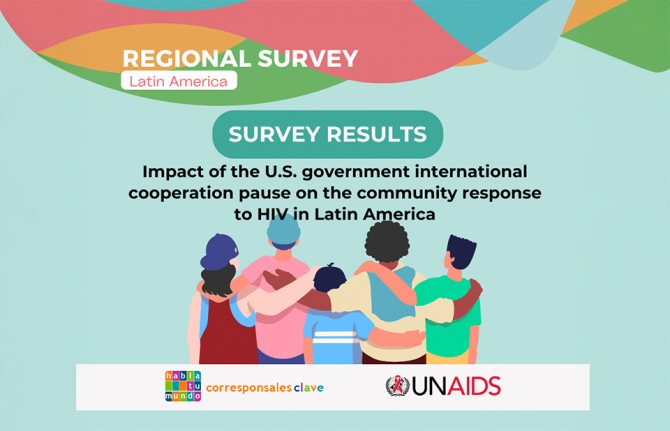

Update
Chile continues to make progress on stopping new HIV infections among children
09 September 2015
09 September 2015 09 September 2015During her meeting with UNAIDS Executive Director Michel Sidibé on 8 September, President Michelle Bachelet of Chile reaffirmed her commitment to ending mother-to-child transmission of HIV in the country.
Mr Sidibé, who visited Chile from 7 to 8 September, congratulated the President for the decisive steps the country has taken to improve the quality of maternal and child health services and to expand HIV testing, treatment and follow-up.
Chile has put in place pre-natal care policies aiming to scale up services to help stop new HIV infections among children. In 2014, more than 95% of pregnant women living with HIV in Chile had access to antiretroviral medicines, compared to 78% for Latin America as a whole. The percentage for Chile represents an increase in coverage of close to 25% since 2012.
Mr Sidibé spoke about the importance of expanding and integrating HIV services with other health and maternal care services to increase the number of women reached. He also stressed the importance of ensuring that the most vulnerable have access to HIV prevention and treatment without fear of discrimination.
Mr Sidibé and President Bachelet agreed that the country should continue improving access to information and knowledge on maternal health, including HIV, to meet the needs of indigenous and other communities, who may be missed by current programmes.
While in Chile, Mr Sidibé also met with the Minister of Health, the mayor of Santiago, people living with HIV and representatives of civil society.
Quotes
“I applaud the vision, commitment and will of Chile’s political leadership to ensure that no child is born with HIV in the country and that all mothers remain alive and well.”
“Chile will redouble efforts to achieve elimination of mother-to-child transmission of HIV by scaling up access to services.”
“We are constantly updating our response to the AIDS epidemic, depending on the reality that we see in the country. We have made important gains on health, but there are still some aspects that we believe should be strengthened, such as prevention.”
“We indigenous peoples know what discrimination, rejection, abandonment and violence mean. We have suffered them for more than 500 years. Without the involvement and participation of indigenous peoples in the HIV response, we will not be able to meet the 90–90–90 targets and end the AIDS epidemic.”
"We are committed to strengthening the participation of civil society through multisectoral work, the establishment of a formal coordination mechanism and a common agenda with UNAIDS that includes priorities and challenges.”


